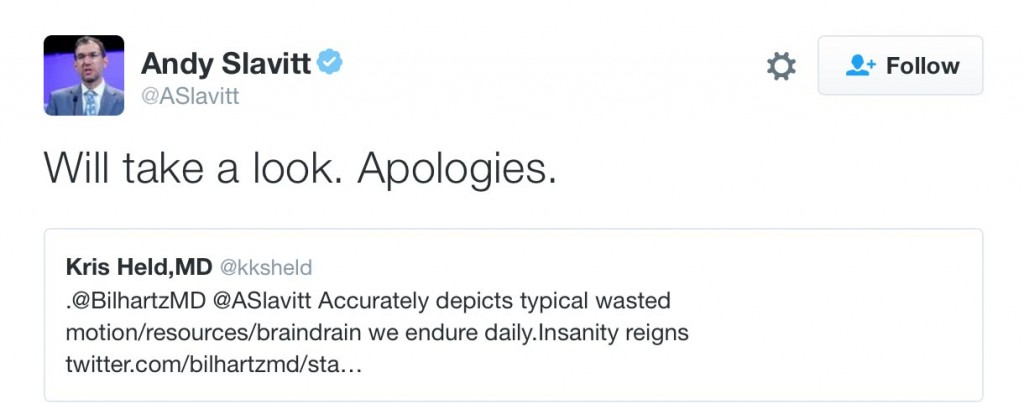My recent post appeared to catch the attention of Mr. Slavitt, Acting Administrator for the Centers for Medicare and Medicaid Services (CMS):
My article recapped another day of insanity within our healthcare enterprise, and yes, taking a look, Mr. Slavitt, would be greatly appreciated.
Choosing to see, however, is my challenge for you—for as a friend reminded me, you seem to be very good at “feeling our pain.”
But, I must admit, thanks to you, I was contacted by a CMS official overseeing the startup of MACRA.
For those that don’t follow healthcare policy closely, MACRA is our government’s latest medical project. Another soon-to-be-implemented healthcare law with 962 pages of rules, including the most recent method devised to pay physicians, something known as the Merit-Based Incentive Payment System (MIPS).
CMS was seeking my perspective on MACRA and MIPS.
My written response to them—edited only somewhat for brevity—is shared below:











Recent Comments